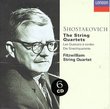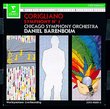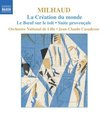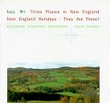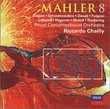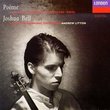| All Artists: Thomas Ades, Jill Gomez, Valdine Anderson, Niall Morris, Almeida Ensemble, Roger Bryson Title: Adès: Powder Her Face Members Wishing: 1 Total Copies: 0 Label: EMI Classics Release Date: 11/3/1998 Genre: Classical Style: Opera & Classical Vocal Number of Discs: 2 SwapaCD Credits: 2 UPC: 724355664921 |
Search - Thomas Ades, Jill Gomez, Valdine Anderson :: Adès: Powder Her Face
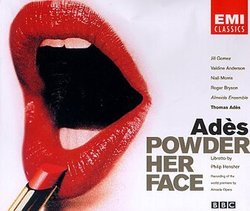 | Thomas Ades, Jill Gomez, Valdine Anderson Adès: Powder Her Face Genre: Classical
In search of a topic for his first opera, Thomas Adès originally turned to Lolita before being drawn to the ironic morality tale of sex, privilege, and the media that furnished the basis for Powder Her Face. Neverthel... more » |
Larger Image |
CD DetailsSynopsis
Amazon.com's Best of 1998 In search of a topic for his first opera, Thomas Adès originally turned to Lolita before being drawn to the ironic morality tale of sex, privilege, and the media that furnished the basis for Powder Her Face. Nevertheless, he exudes a Nabokovian delight in the rich possibilities of his allusive musical language. Most winningly, Adès's detailed portrayals of character and mood add depth to the tabloid fall-from-grace story that was the opera's germ. --Thomas May Similarly Requested CDs
|
CD ReviewsThe Future Of Modern Opera Simon | 11/12/1998 (5 out of 5 stars) "No opera about a sex-crazed English duchess could be all bad, right? "Powder Her Face" lives up to its rave UK reviews, and then some. Ades has an amazing knack of writing accessible music that is also totally modern. At times strongly reminiscent of Britten, at other times a pastiche of composers like Bartok or Stravinsky, his orchestration is powerful and innovative. To non-opera buffs, or those of a more lowbrow persuasion, the thought will occur: "this is what Frank Zappa could have achieved, if he'd tried a bit harder." The Five Star rating is no exaggeration. Watch for the great sloppy thirties-style ballads, Jill Gomez' excellent singing, and the sly way Ades nods a tribute to pretty much every musical form of the 20th century, while retaining proper operatic forms. Buy it!" Opera of the future? Hmm... I don't think so Simon | London, England | 01/11/2000 (3 out of 5 stars) "I think it's perfectly possible to have an viewpoint lyingsomewhere in between. I bought it on the basis of a wildlyenthusiastic review in Music Magazine, which mentioned the work in the same breath as the great operas of Berg, Britten et al. Aside from that there was the instrinsic fascination of hearing a work written by a guy who went to the same school as myself, and who was always getting heaps of praise from his school-mates about how brilliant he was (though as a pianist rather than a composer). However, as so often in the case of a promising young `star', I believe this opera has received in many musical quarters the kind of excessive critical appraisal that does neither the work nor the composer any favours. Comparing the work to Wozzeck and the great operas of Britten is hyberbole driven to excess. There are certainly passages of genuine dramatic intensity, but these are rarely sustained and nothing comparable to the horror experienced in Wozzeck; and Ades has yet to acquire Britten's succinct characterisation and direct emotional appeal that makes his operas such great works. To begin with: the libretto. Others may disagree, but in using a semi-biographical story based on the sordid sex life of a beautiful but ultimately tragic aristocrat, Ades encountered from the start an uphill struggle. Surely no one will make the mistake in the future of attempting to write an opera based on Princess Di's failed marriage and untimely death! This inevitably results in a problem piece; a piece too sophisticated and eseoteric in idiom to appeal to the masses in spite of its soap-opera-like plot, but too banal and shallow in places (such as the Noel Coward pastiche) for it to be a great and convincing work of art. The elements of the popular and avant-garde do not for me coalesce. Ades is undeniably gifted when it comes to devising novel instrumental effects within an unconventional ensemble, what with its most unusual percussion section (including a fishing reel among other things!); but too often this results in superficiality; there is much surface gloss but not enough depth of emotion. There are exceptions, notably the closing scene with the Duchess lamenting her declining reputation, but these come like oasises in a desert. There is a host of allusions, sometimes clever disguised, to a variety of popular styles, such as jazz, cabaret and Broadway but these have little relevance to the more seriously intentioned parts of the work. Moreover, I don't feel that Ades sufficiently disguises the element of pastiche often prevalent in the work. Kurt Weill, and even Britten to some extent had no hesitation in employing popular idioms in their work, but these always came with an underlying cynicism and bitterness (as in Mahler). The opera improves in the second half, when the Duchess's declining fortunes begin to catch up with her, and the music is shed of most of its previous pastiche. However there remain other problems; there is too much dialogue, and this is largely the fault of the libretto, I'm afraid. Based on real life events, rather than ancient mythology or Shakespearean dramas (as in the Wagner or Verdi operas), the opera's characters 'talk' too much, rather than make any really meaningful statements, and this poses real problems when setting their dialogue to music. There is too much recitative, and when there is melodic writing for the singers, it too often submerges what's going on in the small orchestra, making listening very heavy going without the aid of the plot. I should be able to enjoy the opera as absolute music, without constant recourse to the libretto in the CD sleeve notes, but I find it very difficult at times! It was only when I saw a Channel 4 production last Christmas that some of the complexities of the work and the relevance between music and words came to light, but this TV staging still failed to convince me that the work is a great masterpiece. Precocious as Ades certainly was (only 24!) when he wrote Powder her Face, he would have to be a genius even greater than Mozart, Mendelssohn or Britten to have created an example of the difficult genre opera that stands comparison with some of the greatest works ever written. Berg and Britten, for instance, were both well over 30 and truly experienced composers when they wrote their great operatic masterpieces. Powder her Face is undeniably the work of a greatly talented and still developing composer, but one whose talents I feel would be better directed in the spheres of orchestral and chamber music. Surely history will regard Asyla as a far more successful work than the much more hyped Powder her Face- and one which makes its point convincingly in a sixth of the time in which Powder her Face, I'm afraid, doesn't." Grating and noisy. John J. Coyne | New York | 12/26/1999 (1 out of 5 stars) "Of course an opera about a sex-crazed duchess can be bad. But young Thomas Ades' first opera, Powder her Face, is not bad - it's accostic and unlistenable. Speaking as one of the unfortunate contemporary music fans present for the US premiere of this opera, I know for a fact that I do not stand alone when I say that Ades' attempt to set the English language to music, and to sustain a two-act, essentially banal story line fall so far short of all the hype surrounding the performance that one wonders who the composer had to bribe to get his music played in the first place. Not only is his choice of idiom (a transparent and ultimately unsuccessful fusion of popular music and austere modernism) totally unsuited to the words being sung, but the composer's apparent inexperience in orchestration resulted in entire passages where one could not hear the vocal line at all under the dense instrumental writing. Not that you would be able to understand what was being sung even if it weren't. This is a far cry from the future of modern opera, and if some composer years from now finds any of the music written in the latter half of the twentieth century to be influential, I can assure you that Powder Her Face will not part of it. If you're looking for good contemporary opera, I would suggest Harrison Birtwislte's Punch and Judy, Meredith Monk's ATLAS, John Adam's Death of Klinghoffer, or David Amram's The Final Ingredient."
|

 Track Listings (18) - Disc #1
Track Listings (18) - Disc #1

